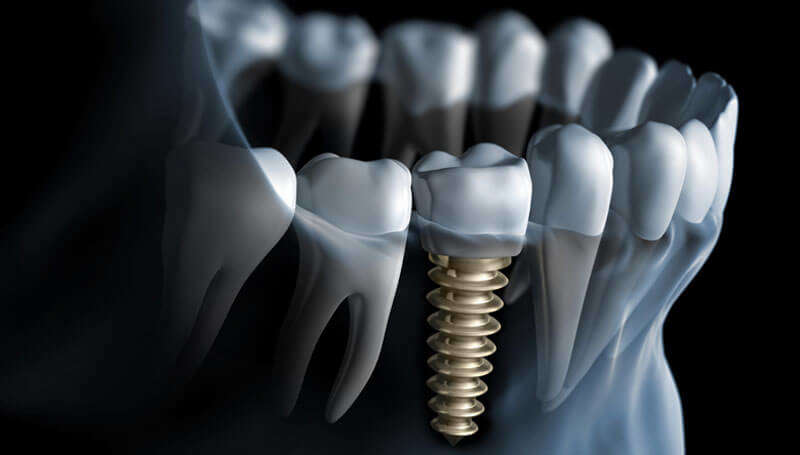Dental implants have revolutionized the field of dentistry, offering a long-term solution for individuals with missing teeth.
They provide a stable and natural-looking alternative to traditional dentures or bridges. However, one of the common questions among patients considering dental implants is the cost associated with the procedure. Understanding the factors that contribute to the overall cost of getting all dental implants can help patients make informed decisions about their oral health and treatment options.
Understanding Dental Implants
Before delving into the cost aspect, let’s first understand what dental implants are and how they work. Dental implants are artificial tooth roots made of biocompatible materials like titanium. They are surgically placed into the jawbone to serve as a stable foundation for replacement teeth, such as crowns, bridges, or dentures. The process involves several stages, including initial consultation, implant placement surgery, healing period, and placement of the prosthetic teeth.
SEE ALSO: How to Clean Permanent Dental Implants?
Factors Influencing The Cost of All Dental Implants
The cost of getting all dental implants can vary widely depending on various factors. Here are the key factors that influence the overall cost:
Number of Implants: The total cost will depend on how many implants are needed to replace missing teeth. A full set of dental implants typically ranges from 6 to 8 implants per arch for complete restoration.
Implant Material: The type and quality of the implant material used can affect the cost. Titanium implants are commonly used due to their durability and compatibility with the body.
Implant Brand: Different implant brands may have varying costs. Some brands are well-known for their quality and longevity, which may come at a higher price.
Implant Placement Technique: Advanced techniques such as guided implant surgery or immediate load implants may have higher associated costs but can offer faster results and improved outcomes.
Bone Grafting or Augmentation: In cases where the jawbone lacks sufficient density or volume to support implants, bone grafting or augmentation procedures may be required, adding to the overall cost.
Additional Procedures: Other procedures such as sinus lifts, soft tissue grafts, or extractions performed in conjunction with implant placement can contribute to the total cost.
Location and Dental Provider: The geographical location of the dental practice and the expertise of the dental provider can also impact the cost. Practices in urban areas or with highly experienced implant specialists may charge higher fees.
Material and Type of Prosthesis: The cost of the prosthetic teeth, whether they are crowns, bridges, or full dentures, will also be factored into the overall cost of treatment.
How Much Does It Cost to Get All Dental Implants
Cost Breakdown
While the cost of all dental implants can vary, a rough estimate for a complete implant-supported restoration can range from $20,000 to $50,000 per arch. This cost includes the surgical placement of implants, any necessary bone grafting or additional procedures, the fabrication of custom prosthetic teeth, and follow-up care.
Here’s a breakdown of the potential costs involved:
Initial Consultation: $100 to $300 (may be covered by insurance)
Implant Surgery (per implant): $1,500 to $3,000
Bone Grafting: $500 to $3,000 per site
Prosthetic Teeth (per arch): $1,000 to $3,000 per tooth
Follow-up Visits and Maintenance: Varies based on individual needs and dental provider fees
It’s important to note that these are approximate costs and can vary significantly based on individual factors and the specific treatment plan recommended by your dentist.
Insurance Coverage And Financing Options
Many dental insurance plans do not fully cover the cost of dental implants as they are considered elective or cosmetic procedures. However, some plans may offer partial coverage for certain aspects of the treatment, such as consultations or prosthetic components. It’s essential to check with your insurance provider regarding coverage details and potential out-of-pocket expenses.
For patients concerned about affordability, dental practices may offer financing options or payment plans to help spread out the cost over time. CareCredit and other third-party financing options can provide flexible payment arrangements to make dental implant treatment more accessible.
Conclusion
In conclusion, the cost of getting all dental implants can vary based on multiple factors such as the number of implants needed, implant material, additional procedures, and geographic location. Patients considering this treatment should consult with a qualified dental provider to assess their specific needs, discuss treatment options, and obtain a detailed cost estimate. Investing in dental implants can significantly improve oral health, function, and quality of life for individuals with missing teeth, offering a long-lasting and aesthetic solution for smile restoration.

